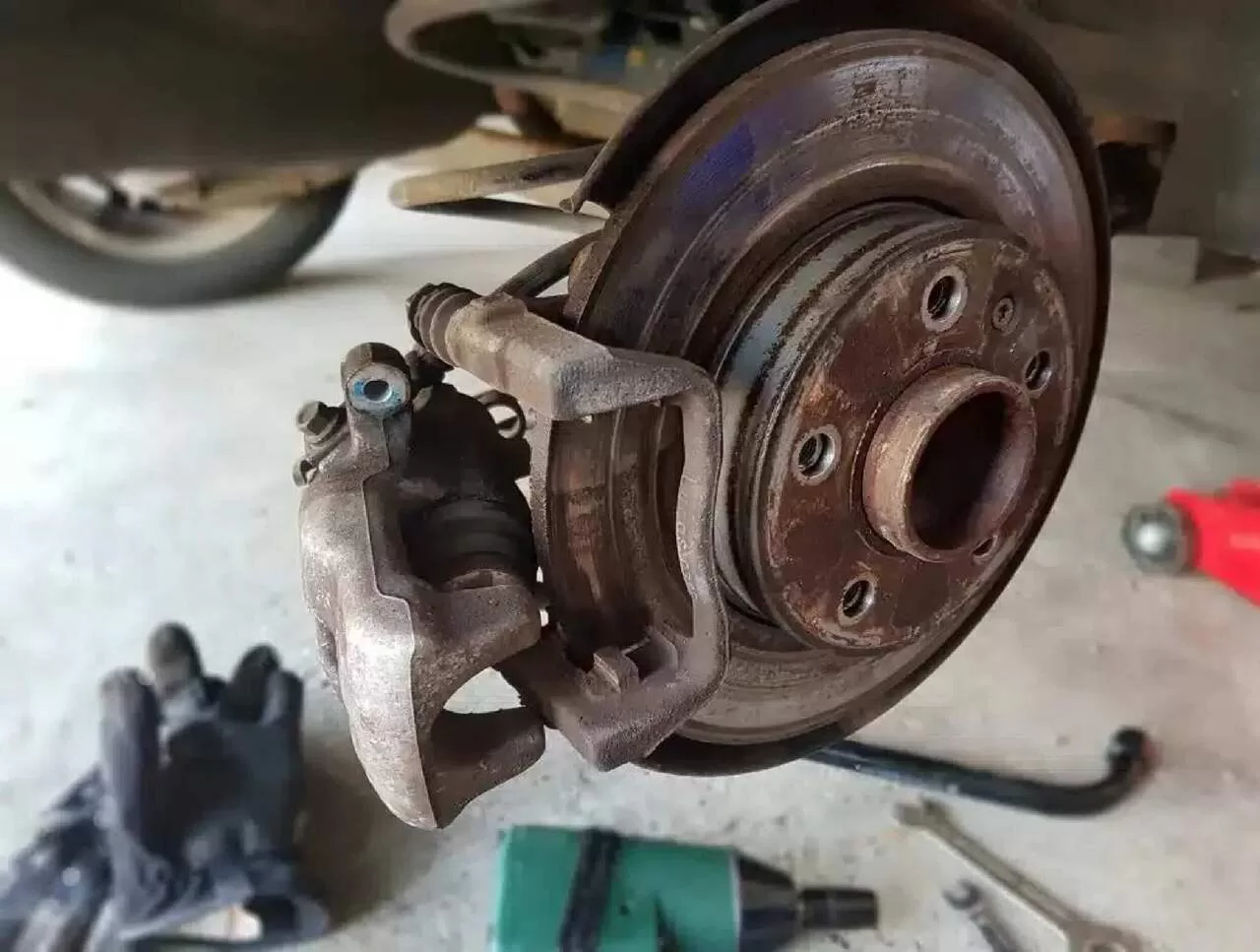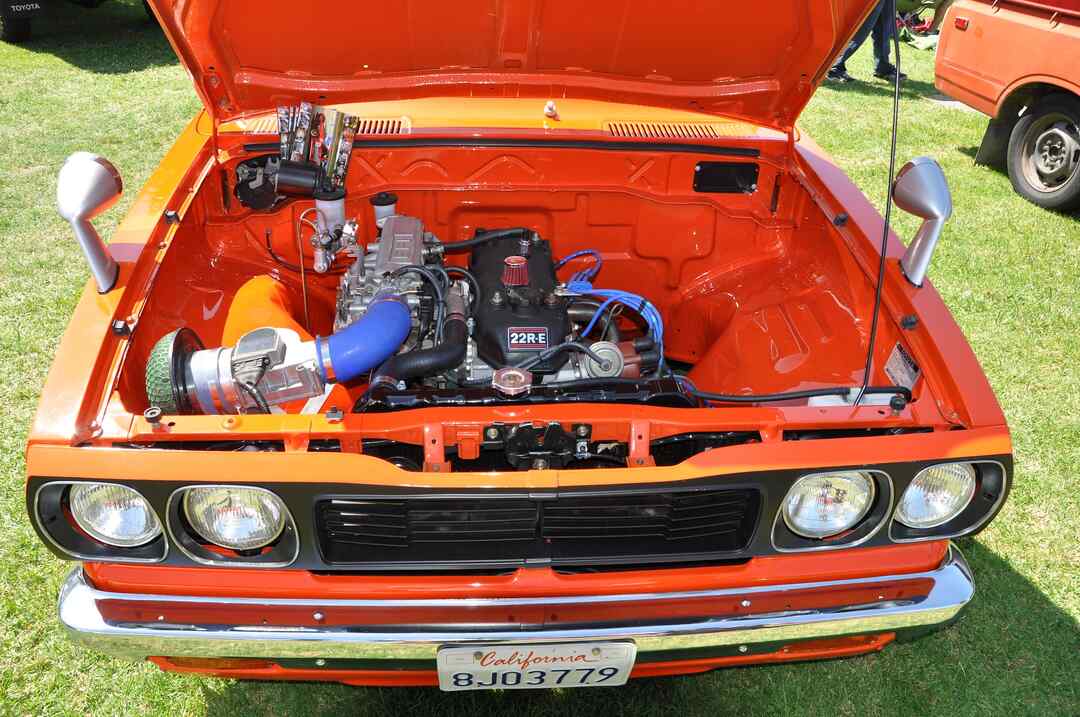The normal noises your car makes, from the engine’s roar to the brakes’ screech, are ones you know well. Your attention is naturally drawn to novel and unusual sounds. Especially if a grinding noise has been going on for days, it’s time to get serious about what’s causing it. Unusual sounds shouldn’t be made by a functioning vehicle. Usually, the brakes are to blame if you hear a grinding noise when driving at low speeds. Your car’s brakes are essential to ensure a driver’s safety. Just as crucial as taking off is slowing down. If your brakes are producing noise or intermittent grinding noise when driving, what does it mean? We’ll talk about a few reasons and scenarios for grinding noise when driving in this post.
Why Is There This Noise?
You must be able to handle the symptoms that malfunctioning parts provide. A component often makes a distinctive noise when it malfunctions. This is an audible warning that a part of your automobile has broken down and needs to be fixed or replaced. Let’s explore it in more detail below.
The Importance of Understanding the Causes of Grinding Noise
You should identify the problem before it’s too late for two reasons.
- First, there is a strong risk of failure if the noise originates from the brakes. If you have a dual-air brake system to know more about it. When you start driving, the only way to slow down is by using the brakes. Without brakes, you won’t be allowed to control your vehicle. So, having a grinding noise when driving slowly and braking also isn’t working is the major issue.
Driving a vehicle without brakes is an invitation to disaster. Therefore, you must identify and address the issue’s root cause to prevent an accident.
- Second, the harm grows the longer the issue persists. With practically every auto-related issue, this is true. Therefore, you might ultimately save thousands of dollars by resolving the problem at an early stage.
Thus, you must be able to accurately analyze grinding sounds while slowing down or driving slowly. Furthermore, you need to be able to resolve this problem.
What Would Cause A Grinding Noise When Driving
Analyzing your vehicle’s audible indications is an essential skill for car owners to master. Here, we’ll go through how to evaluate the cues and potential fixes.
This might occur for a variety of reasons. However, let’s focus on a few of the most typical causes of grinding noise when driving.
Defective Wheel Bearings
Friction between the parts will occur if the bearings aren’t operating correctly. This will make a loud grinding noise when driving. Worst of all, it will cause those components to wear down too quickly. Therefore, if you accelerate, you can also notice a screaming sound. Additionally, when turned, this generates a grinding sound.
There may not be much bearing wear if you catch the problem early on. Since lack of oil is often the root of this problem, you may lubricate the bearings by adding grease, and your automobile should function normally.
However, if these grinding sounds have been bothering you for a time, your wheel bearings are likely worn out. You may need to replace these bearings if this occurs.
Alternator
The alternator and battery together are in charge of providing electricity to your automobile when it is moving. However, when the bearings or other internal components degrade, an old alternator may often cause weird grinding noise when driving. If you hear any sounds from the engine, rule out the alternator first since it may be costly. If your engine power is reduced, check how to fix it here.
You may often check this on your own if you don’t want to spend any time. Remove the fan belt, switch off the engine, and try gently spinning the alternator by hand. The bearings may need to be changed if they sound loud or feel rough. You may also listen for sounds when the automobile operates using a rubber tube.
Water Pump
Now that the alternator seems to be functioning properly, it’s time to examine the water pump. In order to keep the engine block and radiator working at a safe temperature and avoid overheating, the water pump distributes coolant through them. Although the internal bearings of the automobile often wear out and produce the metallic grating sound, the water pump employs pulleys. Although it might be difficult to detect water pump noise while driving, it is considerably more audible when the automobile is at a stop.
Electric Steering
If you’ve checked everything above and still hear a grinding noise, your power steering may be the cause. Electric steering, often propelled by a rotary vane pump, uses hydraulic pressure to lessen the force needed to spin the wheel. The driver may steer more easily because the pump pushes the high-pressure liquid through the system.
Most often, the issue is with the electrical steering fluid. For instance, the fluid may be old and not pumping effectively (losing its physical qualities) or include tiny air bubbles that cause the pump to moan and vibrate. Alternatively, the power steering system may just be deficient in the fluid.
Various Scenarios Of Grinding Noises When Driving
It’s crucial to locate the noise’s source and take the necessary steps to stop future harm, whether the noise is constant or sometimes heard. Here are many scenarios for grinding sounds that may occur when driving, especially at low speeds, as well as potential causes and fixes.
Grinding Noise When Driving at Low Speeds:
A typical problem for automobile owners is a grinding sound while moving slowly. This noise often comes from the car’s rear and may be a sign of a number of other possible issues. Brake shoes or pads that are worn out are one potential cause. Metal-to-metal contact and a grinding sound are caused by the friction material on brake pads wearing down over time. It is essential to evaluate your braking system in such situations and, if required, replace the worn-out parts.
Intermittent Grinding Noise When Driving:
You could hear sporadic grinding sounds while driving and a constant grinding sound. These erratic noises may emerge and vanish without any apparent pattern, which makes them puzzling. In such situations, examining the driveshaft and universal joints is often advantageous. When moving, a driveshaft or universal joint that is worn out or broken may make grinding sounds. To identify and fix any problems with these components, seek expert help.
Grinding Noise When Driving Straight:
If you hear a grinding noise when traveling straight, it can be a sign that the suspension system or tires aren’t working properly. Worn-out or broken suspension parts, such as control arms, bushings, or struts, may bring on wheel misalignment and grinding sounds.
Problems like poor alignment, uneven tire wear, or damaged tires might also cause a grinding sound.
An expert technician can assist in identifying the precise reason and address the problem by looking at your suspension system and tires. You can choose continental tires that are the best of all.
Metal Grinding Noise When Driving:
When driving, a distinct metal grinding sound needs rapid attention. This kind of noise might be a sign of gearbox or differential issues. Problems like insufficient gearbox fluid, worn gears, or a failed differential might cause a metallic grinding sound.
Ignoring these signs might seriously harm essential drivetrain parts. It is essential to seek the advice of a skilled expert who can conduct a careful examination, provide an accurate diagnosis, and complete the required repairs.
Grinding Noise at the Back of the Car:
It’s critical to take immediate action if you hear a grinding noise from your car’s back. Look at potential reasons like worn-out brake pads, problematic rear wheel bearings, or problems with the differential. You can save future damage from wheel grinding noise when driving and preserve your car’s overall performance by recognizing and caring for these issues. This will also solve the issue of your car making a scraping noise when accelerating.
Conclusion
While some sounds may not be too significant and be readily addressed, others could be signs of more serious issues that render your automobile unreliable or hazardous to drive. The typical causes and scenarios for grinding noise when driving are covered in this article, but it’s essential to remember that other variables might also occur. You should contact a skilled expert who can accurately diagnose the issue and perform the necessary repairs or replacements.




